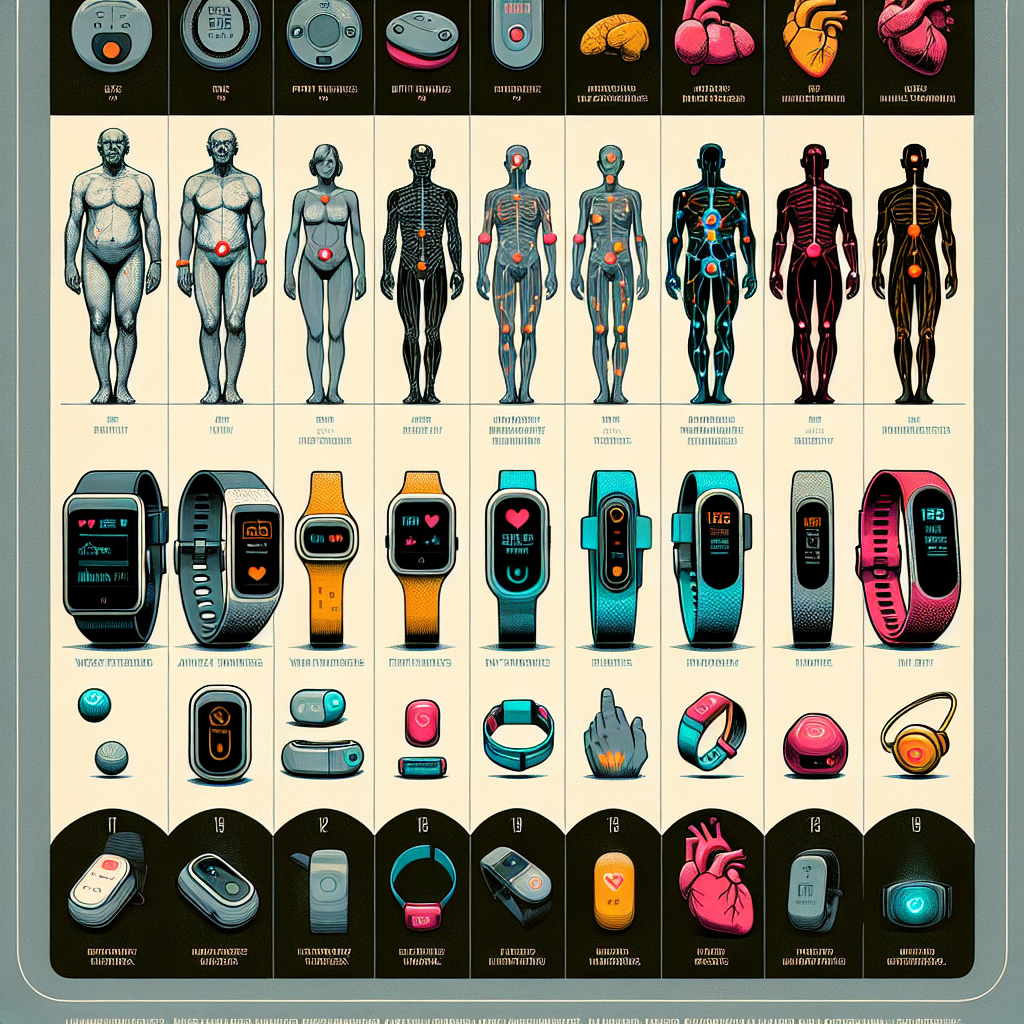Wearable technology has transformed the way we live and interact with the world around us. From fitness trackers to smartwatches, these devices have become an integral part of our daily lives. However, the evolution of wearable technology goes beyond convenience and entertainment. In the context of healthcare, these devices hold immense potential to revolutionize the way we monitor, diagnose, and treat various medical conditions. In this article, we’ll explore the evolution of wearable technology and its potential impact on healthcare, shedding light on the groundbreaking advancements and the promising future that lies ahead.
The Early Days of Wearable Technology
The concept of wearable technology traces back to the 17th century when the very first wearable mechanical timepieces were invented. Fast forward to the 20th century, we witnessed the emergence of the calculator watch in the 1970s and early iterations of fitness trackers in the 1980s. These early developments laid the foundation for the wearable technology we know today.
Advancements in Wearable Health Monitoring
With the rapid advancements in technology, wearable devices have evolved to encompass a wide range of health monitoring capabilities. Modern wearable fitness trackers can now monitor heart rate, track sleep patterns, and count steps with remarkable accuracy. Additionally, wearable health monitors are being developed to track vital signs such as blood pressure, blood glucose levels, and even detect irregular heart rhythms. These devices provide individuals and healthcare professionals with valuable insights into their health, allowing for early detection of potential issues and personalized health management.
Diagnostic Capabilities of Wearable Devices
Beyond monitoring, wearable technology is increasingly being utilized for diagnostic purposes. In recent years, wearable devices equipped with biosensors and advanced algorithms have shown promise in detecting various medical conditions. For instance, smart shirts embedded with ECG sensors can detect abnormal heart rhythms, while wearable glucose monitors offer continuous glucose monitoring for individuals with diabetes. These advancements have the potential to improve the early detection and management of chronic diseases, ultimately leading to better health outcomes.
Remote Patient Monitoring and Telemedicine
One of the most significant impacts of wearable technology in healthcare is the enablement of remote patient monitoring and telemedicine. With the ability to gather real-time health data, healthcare providers can remotely monitor their patients, adjusting treatment plans and interventions as needed. This is particularly beneficial for individuals with chronic conditions, enabling them to receive continuous care from the comfort of their homes. Furthermore, telemedicine platforms integrated with wearable devices allow for virtual consultations and timely healthcare interventions, bridging the gap between patients and healthcare providers.
The Future of Wearable Technology in Healthcare
As wearable technology continues to advance, the future of healthcare holds immense potential for further integration and innovation. From smart contact lenses capable of monitoring glucose levels to wearable patches that administer medication and monitor vital signs, the possibilities are endless. Moreover, the integration of artificial intelligence and machine learning algorithms with wearable devices has the potential to revolutionize disease prediction, personalized treatment plans, and healthcare decision-making.
Conclusion
In conclusion, the evolution of wearable technology has ushered in a new era of possibilities for healthcare. From monitoring and diagnostics to remote patient care and future innovations, wearable devices have the potential to transform the way we approach healthcare. As technology continues to evolve and healthcare becomes more personalized, the impact of wearable technology is set to play a pivotal role in improving health outcomes and empowering individuals to take charge of their well-being.
Frequently Asked Questions
-
How accurate are wearable health monitors?
Wearable health monitors have significantly improved in accuracy over the years, with many devices offering reliable data for heart rate, sleep patterns, and activity tracking. However, the accuracy of specific health metrics may vary between different devices, so it’s essential to research and choose a device that best suits your needs.
-
Are wearable devices secure in protecting personal health data?
Security and privacy concerns are crucial when it comes to wearable health devices. Manufacturers employ encryption and security measures to protect personal health data, but users should also be vigilant in managing their data and privacy settings. It’s recommended to use reputable devices and stay informed about data security best practices.
-
Can wearable technology replace traditional healthcare services?
While wearable technology can enhance healthcare delivery and remote monitoring, it is not intended to replace traditional healthcare services. Rather, it complements existing medical care by providing valuable data and insights for both individuals and healthcare providers. The human touch and expertise of healthcare professionals remain irreplaceable.
